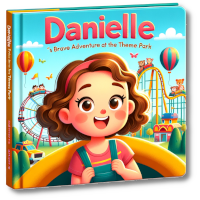Reading with children
a blog by Magic Tales

Strengthening Parent-Child Bonds: Reading About Emotions with Kids
Reading isn't simply an activity to keep your little ones busy. It’s also an excellent way to strengthen your relationship with your child, while simultaneously aiding in their personal growth. And when it comes to reading selections, there’s a whole universe of children's books dedicated to understanding emotions. Let’s discover how you can tap into the power of these emotion-centered reads to further enrich your bond with your child, while promoting emotional literacy.
Firstly, let’s talk about emotional literacy. It signifies the ability to identify, understand, and manage our own emotions and the emotions of others. This understanding is crucial for the child's emotional, cognitive, and social growth. It plays a role in developing empathy, problem-solving skills, and stronger interpersonal relationships. Children's books about emotions serve as the perfect tool to foster this skill.
Reading about emotions with your child is a golden opportunity to encourage open dialogue. As you read stories which showcase characters experiencing different emotions, ask your child how they think the characters are feeling. It helps children to articulate their feelings better, becoming more emotionally aware.
Also, these stories enable you to reassure your child that it is normal and okay to experience a wide range of emotions. For instance, if the character in the book is upset, it validates your child’s feelings when they are upset. A validating environment fosters a sense of secure attachment and self-esteem.
What's beautiful about reading a book together is how it often translates into quality time. This shared experience fosters closeness, creating an environment of trust and security. Bonds based on trust and security encourage children to better express their emotions freely, improving parent-child communication.
Books on emotions often have situations where the characters face emotional hurdles and deal with them in different ways. Parents can use these storytelling elements as powerful teaching moments to inculcate resilience and problem-solving skills.
As a bonus, reading together before bedtime serves as a wonderful wind-down activity, creating a calming routine before sleep. It also creates beautiful shared memories that can make your child feel loved and cherished.
In conclusion, books can provide a safe and enjoyable avenue for discussing emotions with children, offering them the capacity to understand their own emotions, the emotions of others, and how to manage them. Reading these books with your child isn’t just about improving your relationship with your child, it’s also about holding their hand as they navigate the vibrant spectrum of human emotions throughout their lives.
Want a personalized book to read with your child about Emotions?
Takes as quickly as 30 seconds to create
Create a book about Emotions

